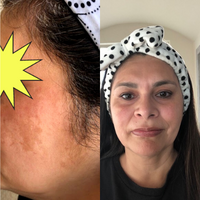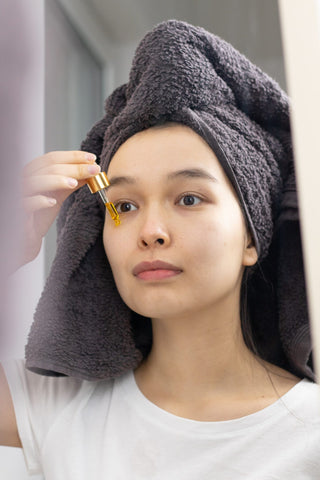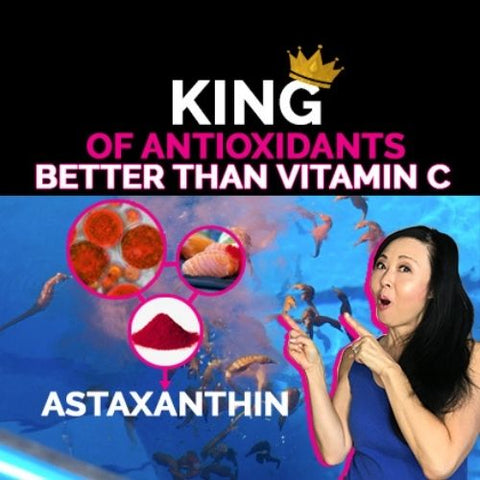What is Retin-A and how does it work?
Retin-A was originally used to treat Acne and came to be used for anti-aging as well! But did you know Retin-A can actually PREMATURELY AGE your skin if not used properly??
Read on or watch our short video (below!) to find out what Retin-A is and how to use it so you’re not AGING your skin faster!
So, Retin-A (“Tretinoin”or the Over the counter version Retinol ( there is a difference) can be found in over-the-counter products, but they have a VERY small percentage in them. The ones that will give you the best results can be found at the Dermatologist, where they have to prescribe it to you. These are more of a purer form and have a much higher percentage of Retin-A in the products.
As we mentioned above, Retin-A was originally created and prescribed to people with Acne. It helps heal Acne lesions faster and prevents new Acne from coming to the surface of the skin.
How does it do that? When applied to your skin, Retin-A speeds up the skin-cell turnover rate (which is how it helps heal the Acne lesions faster).
What was found was as a side effect, Retin-A could also be used to treat fine lines and wrinkles! The increase in skin-cell turnover helps minimize the look of those fine lines and wrinkles. (Yay!)
This anti-aging miracle happens because it forces the skin to shed faster and regenerate faster, mimicking and behaving like younger skin. Therefore, it GREATLY reduces the appearance of fine lines and wrinkles by making them look a little more plumped up and not quite as deep.
Now, there is another (not-so-great) side effect of using Retin-A for long periods of time: It can cause a lot of underlying inflammation, which can make the skin look red and cause it to feel dry, itchy, and scaly. How can you avoid this? If you are already using Retin-A for anti-aging or are thinking of using Retin-A, we recommend to ONLY use it at NIGHT… NEVER during the day.
Retin-A will make your skin EXTREMELY photosensitive, meaning if you use it during the day, your skin will be more vulnerable to getting sunburned, which then causes your skin to age faster. (Which completely defeats the purpose of using Retin-A in the first place…)
We also recommend to ONLY use it during the cooler Fall and Winter months. Still, only at NIGHT.
And, like we mentioned before, we recommend to NOT use it for an extended period of time. (Give your skin a rest!) Use it in shorter amounts with breaks in between.
(When we have clients come in, and they have been using Retin-A for a long period of time, we can usually tell because they all have the SAME look to their skin: an inflamed redness to their skin.)
So, how does any of this potentially prematurely age your skin?
With prolonged use, you are constantly thinning out the Stratum Corneum (which is the outer layer / top layer of the skin). This can make you more prone to irritation and redness, and your skin can become more sensitized to the environment and skincare products causing inflammation.
When your skin is irritated and inflamed, your body sends out the white blood cells because it’s detecting the inflammation and thinks there’s a potential infection. When your body is constantly sending out the white blood cells, eventually your skin may age from the INSIDE because the white blood cells break down the Collagen and Elastin in your skin.
On the OUTSIDE, the Retin-A is making your skin thinner and more sensitized which makes it vulnerable to aging from too much Sun and also dries out your skin.
The way you can treat this is to wear a high SPF sunscreen / moisturizer. We recommend an SPF of between 30-to-50. (If you’re using an SPF of 70 or higher they are typically CHEMICAL sunscreens and may irritate your skin.)
When your skin is sensitive or more sensitized, whether it’s because your skin is naturally sensitive or due to use of Retin-A, we recommend you use a MINERAL sunscreen.
Mineral sunscreens and moisturizers include the following ingredients: Zinc Oxide, Iron Oxide, Titanium Dioxide, etc. (anything that ends in “oxide”). These are the sunscreens that stay ON TOP of your skin rather than absorbing INTO your skin and your body.
Zinc Oxide has anti oxidant and anti inflammatory properties so it will help protect your skin both from the sun and the inflammation Retin A can bring on.
We also recommend you hydrate your skin as much as possible! Along with increasing the skin-cell turnover rate (which will thin out your skin and may cause it to flake), the skin loses its ability to hold on to moisture.
Therefore, you may experience T.E.W.L.: “Trans-Epidermal Water Loss”.
Your skin loses the ability to hold on to and retain moisture because it is shedding so quickly, which can lead to MORE fine lines and wrinkles!
Make sure your skin is DEEPLY hydrated at all times. Use products that contain Hyaluronic Acid, hydrating serums, and hydrating toners that will help your skin to retain that moisture.
You can also give your self a DEEP HYDRATING ANTI INFLAMMATORY MASK–
You can use this gel based mask and leave it on overnight. You can leave it in the refrigerator so that it will help reduce redness and inflammation faster. It contains Azulene and Zinc to reduce the inflammation that Retin A can bring on.
If you’d like to know more about hydrating your skin, whether your skin is naturally dry or you’re using Retin-A and have been noticing a lot of dryness and flakiness, be sure to check out our other video, “The BEST Moisturizer for Your Skin Type”. You can find that HERE
Thank for for reading! Want to keep up with all of our skincare tips, tricks, and videos? FOLLOW US!
YouTube Channel: https://www.youtube.com/channel/UC4XGWX6eheTisHo8UBsdOWA
Instagram: @GoSeeChristy
Facebook: https://www.facebook.com/goseeChristyBeautyBoutique/
Twitter: https://twitter.com/goseechristy
Pinterest: https://www.pinterest.com/goseechristy/




